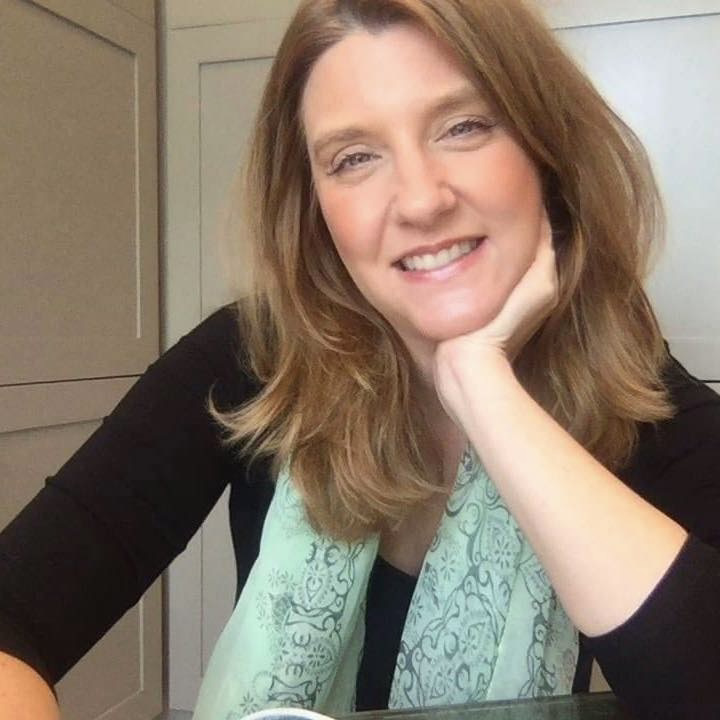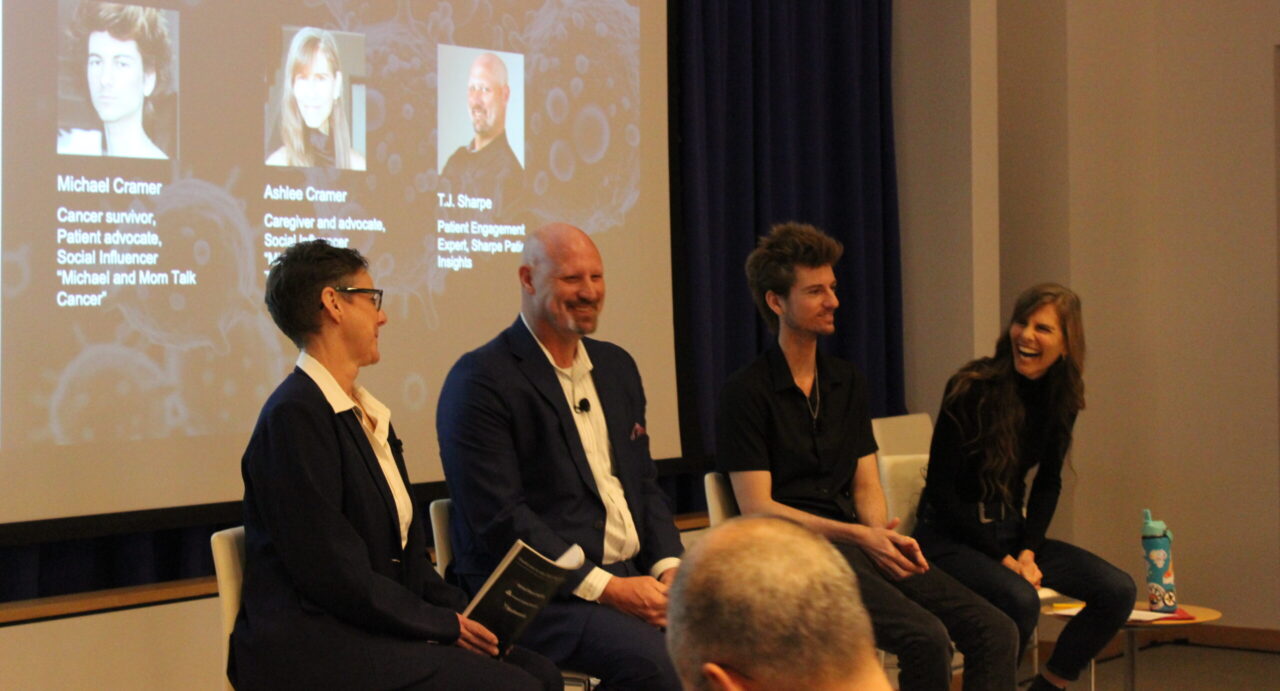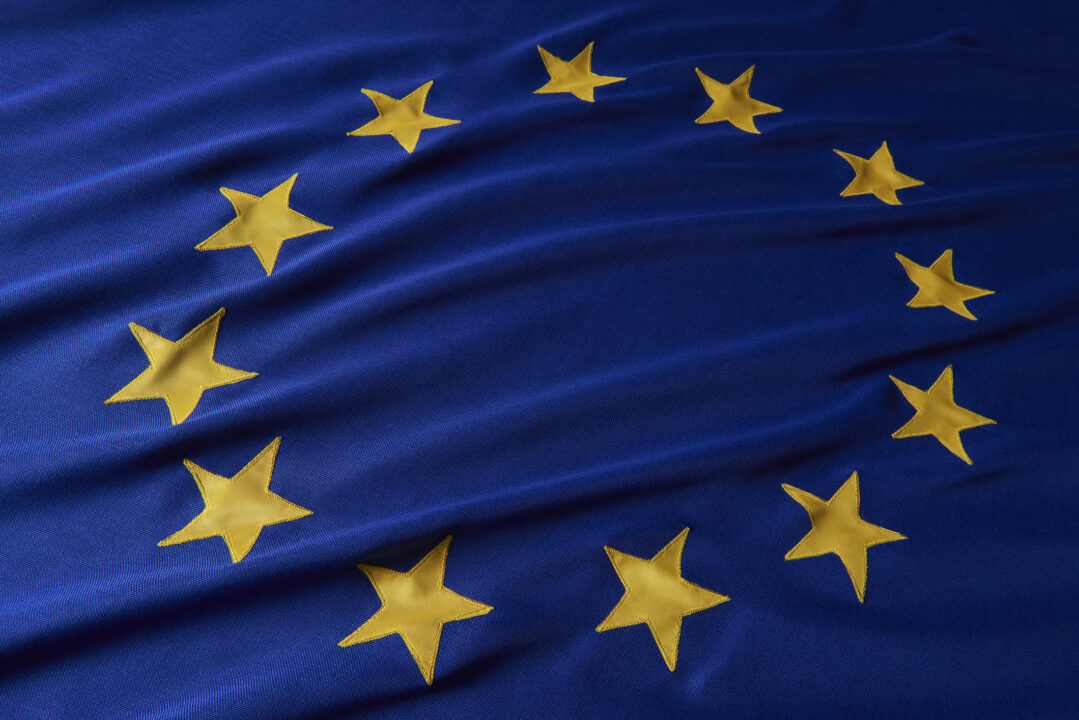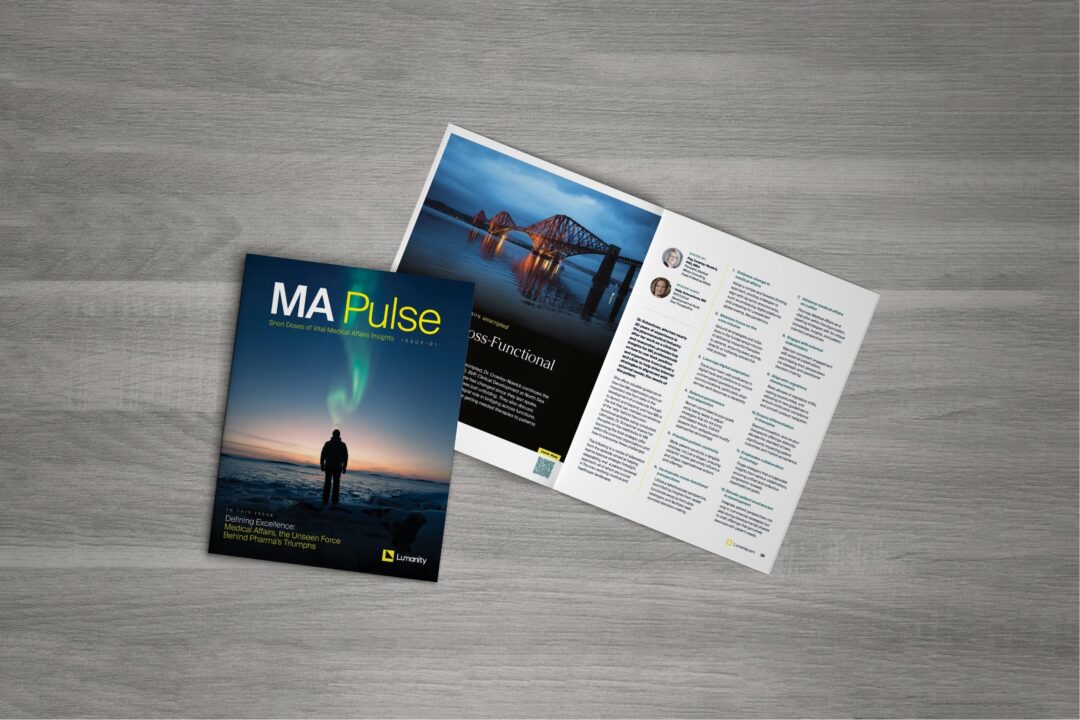Authored by Cello Health, now part of Lumanity
Across rare diseases, awareness days and months have become so effective at helping drive awareness, education, and support. Through the coordination of many voices coming together at the same time, stories get amplified, and become the platform for important health topics. That’s exactly what Guidemark Health aimed to achieve with the 29 Stories initiative.
Michael Parisi, CEO of Guidemark Health, had a chance to sit down recently with Kim Buff, Executive Director at MOMCOLOGY®, who first shared her story with us back in 2020.
Kim Buff is the Founder and Executive Director of Momcology®, a community-based nonprofit support organization directly serving thousands of parents of children diagnosed with cancer through national community-building programs and services. Kim has over a decade of experience building new caregiver programs and incorporating the patient family voice into research, advocacy efforts, and ongoing family support and education initiatives across the pediatric cancer care paradigm. With a strong focus on collaboration and engagement with medical professionals, Kim has helped to accentuate the important role of community and family experience in the advancement of pediatric cancer care.
Everyone knows about pediatric cancer, but do you think awareness of childhood cancer as a rare disease is growing?
I think it should be. People don’t necessarily think of pediatric cancer as rare even though the numbers dictate they should. I think there is a tendency to group all cancers and childhood diseases into larger buckets instead of considering the needs in the context of specific rare conditions. For example, how the trajectory of the childhood cancer experience impacts future adult life when or if survivorship is achieved. There still remains an opportunity for greater awareness on how childhood cancer is vastly unique from adult cancers.
On Rare Disease Day 2022, what do you want people to know about the community that you represent and serve?
Community is integral to the advancement of advocacy around rare diseases. Our mission centers around building and sustaining a responsive and educated community of cancer caregivers. Isolation isn’t rare in rare diseases. When you feel alone, community is what begins to negate those feelings of isolation. When you have a community made up of many voices and experiences, you can begin to curate and create opportunities for more effective advocacy, more robust patient centered engagement, and the resources and solutions to address unmet needs are more easily identified and created. All rare disease efforts should understand that community is an integral piece in the potential acceleration of care.
From a research perspective, what are the biggest challenges that your community is facing?
I’m personally advocating for real world evidence to become a bigger part of the language of treating and understanding the many complex dynamics in pediatric cancer care. We continually push all stakeholders to go past a focus on broad-based outcomes and keep in mind that micro outcomes should be measured at all time points in each individual journey or experience throughout therapeutic treatment and beyond. I think this should be standard practice in pediatric patient-centered care models and there is room to improve our understanding through more opportunities to involve patient advocates with many diverse experiences. I do think it is particularly important when talking about childhood malignancies to set aside any assumptions one may have about the patient experience. Instead, let’s ask those who know the experience best to contribute to what future care could look like. This is extremely exciting for MOMCOLOGY® to see happening and to be part of.
From a MOMCOLOGY® perspective, what are your biggest priorities? How do you see them evolving over the next 3 years?
Our biggest priorities revolve around creating innovative technology. Specifically, developing new platforms to broaden effective and facilitated communication between all stakeholders and our community. As a patient advocacy and support organization serving families and caregivers for over 10 years, we believe now is the time to develop new capabilities, in targeted outreach, to facilitate meaningful communication between everyone working to help children with cancer and their families. We feel uniquely positioned as an organization to be at the forefront of infusing the patient-family experience into all aspects of care.
From a partnership perspective, how do you describe your relationship with the pharmaceutical and biotech industry?
One of mutual curiosity and respect. We need to work together to better translate models seen in the adult world into the pediatric space. For children that don’t have a cure, we simply must do better. This is critical. Thankfully, survival rates are increasing overall and we must remember this is a patient population at higher risk for secondary cancers or ongoing conditions as a result of treatment as they age. Establishing the lines of communication for this specific population now, could be extremely beneficial to the broader cancer community. It’s like any potentially successful relationship in that it takes time to get to know each other, build trust, and find ways to best benefit the cause together. We’d like to see opportunities for more collaboration between pharma, industry, and community-based organizations in pediatric cancer.
In thinking about understanding the patient journey, what makes the pediatric cancer experience unique?
There is a lifetime impact on the patient and the entire family. Parents face added pressure when making care decisions considering how rapidly they are required to. And not only are they making decisions for their child, but also for the adult they will hopefully grow to be. We need to better capture how this information is presented, processed, and how decisions are being made and how these incredibly important time points in care sometimes have a life-long impact on the entire family. I’m not sure if treatment decisions in adult cancers can have such potentially dramatic consequences for so many years. This is why the rarity of childhood cancer needs additional attention in the context of cancer as a whole.
Time for the “magic wand” question. If money were no issue, what is the one thing that you would change about your experience as a parent of a child that went through a cancer journey?
This is hard, we got the best possible outcome available given the treatment my son received. We have had the honor of watching him grow up and become a self-sufficient young adult survivor of childhood cancer. We are lucky. For me, the emotional scars, worry, and the isolation I felt is something I still work to make better for others. I remember telling my son’s medical team that I wish I had a crystal ball so that I could see the future when making important decisions about his treatment and care. I do think the community MOMCOLOGY® has created has helped parents like me have the opportunity to see into the future through the sharing of similar experiences. I’m grateful to see what I sought now being available to families through our community and connection.
As an advocate, do you think it’s important to be included in the rare disease community? What does it mean to the patient and their families?
“Rare” is a word that we hear in the childhood cancer community. Although it does not seem to have the spotlight that maybe it should. Having a child diagnosed with cancer is rare, the impact of pediatric cancer on the entire family and journey experience is rare and navigating the lifelong effects of having cancer as a child is also rare. I think the pediatric cancer community can benefit from the experiences of others who live in the rare disease space and vice versa. I do think it is critically important to bring together all stakeholders―patients, parents, care teams, industry, researchers, and institutions. Especially when it comes to any disease that impacts children, there should be zero barriers in advancing care. There is great opportunity in “rare” when we replace isolation with community.

Kim Buff, Founder and Executive Director of Momcology®.
“Isolation isn’t rare in rare diseases. When you feel alone, community is what begins to negate those feelings in isolation. When you have a community made up of many voices and experiences, you can begin to curate and create opportunities for more effective advocacy, more robust patient centered engagement, and the resources and solutions to address unmet needs are more easily identified and created.”
Kim Buff
Visit www.momcology.org to learn more about MOMCOLOGY®,
their mission, and how to get involved.
Interview led by Michael Parisi, CEO, Guidemark Health











